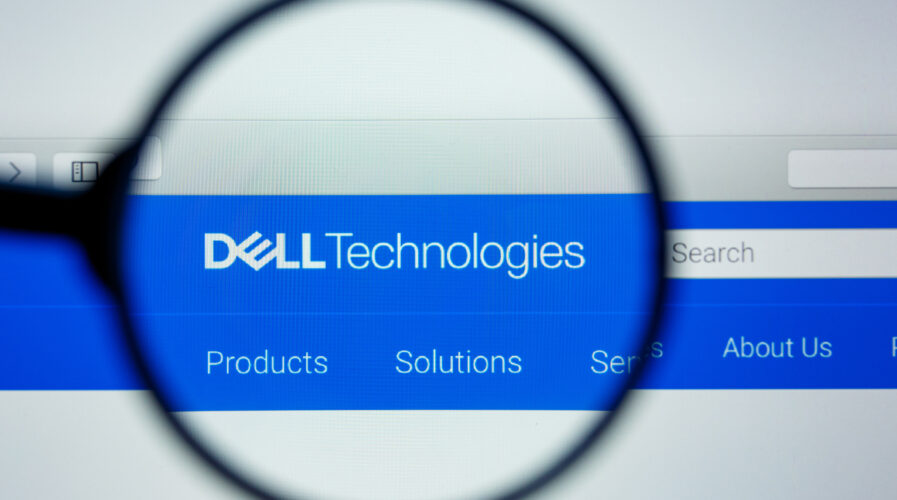
(Source – Shutterstock)
Dell hoping to simplify zero trust for organizations
Everyone talks about zero trust today. But one of the biggest problems of zero trust is ensuring it can be properly implemented. According to numerous reports, most businesses continue to face problems when it comes to implementing zero trust properly in their organization.
Many feel the implementation is too complicated and often just approve all entries to the network. Unfortunately, this is not how it is supposed to work. As a cybersecurity model that allows organizations to better align their cybersecurity strategy across the data center, clouds, and at the edge, zero trust is a proactive strategy in cybersecurity.
With implementation the biggest hurdle, Dell is now aiming to catalyze for customers to achieve Zero Trust outcomes by making the design and integration of this architecture easier.
Speaking at a media briefing recently, John Roese, Global CTO of Dell Technologies highlighted that in a multi-cloud world, an organization’s cybersecurity strategy must transcend its infrastructure and extend to its applications and data.
“We believe a Zero Trust strategy is the best path forward. Dell has the proven IT and security foundation, technology integration experience, and extensive global partner ecosystem to help simplify customers’ cybersecurity transformations,” said Roese.
As such, Dell Technologies will open a Zero Trust Center of Excellence in collaboration with CyberPoint International and the Maryland Innovation Security Institute (MISI) in Spring 2023 at DreamPort, the U.S. Cyber Command’s premier cybersecurity innovation facility. Dell also unveiled new cybersecurity services that allow organizations to assess their Zero Trust and cyber resilience maturity, endpoint security solutions to support hybrid work, and ransomware protection for object storage data.
When it comes to enabling organizations to align Zero Trust principles and achieve cyber resiliency, Dell Cybersecurity Advisory Services will provide organizations with a roadmap to Zero Trust that builds on their existing cybersecurity assets. These services find and address security gaps, determine advanced technologies customers should implement, and help them learn how to enable continuous vigilance and governance for long-term cyber resiliency.
At the same time, to minimize attack surfaces and better protect organizations, Dell offers a new Vulnerability Management service with Dell experts who regularly scan customer environments for vulnerabilities, provide a full picture of exposures, and help prioritize patching efforts.
For Amit Midha, president, Asia Pacific & Japan, and Global Digital Cities, Dell Technologies, the launch of our Zero Trust Center of Excellence, as well as new cybersecurity services and solutions, will enable customers in the Asia Pacific and Japan to stress test their security architecture and enhance their cyber resilience. He added that this is especially critical in this ever-changing cyber landscape that they’re navigating.
Hybrid work and zero trust
With breaches happening above and below the operating system, secure devices are foundational to a Zero Trust-ready organization. Dell is enhancing its portfolio with new offerings that help customers prevent, detect, and respond to threats wherever they occur, and allow greater control of the IT environment. This includes:
- Hardware protections for commercial PCs: To address growing supply chain threats, customers can now opt for Dell to disable PC ports prior to shipment, which helps prevent BIOS settings tampering. Dell is also expanding the availability of tamper-evident seals to Asia-Pacific, Europe, the Middle East, and Africa to offer more physical security measures during shipment.
- Firmware protections to detect growing threats: Organizations can detect potential tampering of a PC’s BIOS with the new integration of telemetry between Microsoft Intune, as part of Microsoft Endpoint Manager, and Splunk consoles. Within the Microsoft Endpoint Manager admin center, IT administrators can secure, control and configure Dell PCs, including BIOS configuration and password management. These capabilities, which Dell is first to market with, will be available in a future release of Intune, helping ensure user productivity while reducing IT complexity.
- Advanced software protections: New capabilities from Dell speed threat detection and remediation. Additionally, a new data loss prevention offering helps protect sensitive data from unauthorized downloads onto external USB storage devices, providing greater visibility and policy control on this behavior.
Meanwhile, to address the growth of object storage data, the Dell ECS Enterprise Object Storage platform expands cyber protection capabilities to help secure object data to an isolated cyber vault residing locally or in a remote environment. Accessible through the AWS S3 protocol, critical applications, and backup servers can continue to access the isolated copy while supporting legal compliance in the event of a cyberattack compromising the primary and secondary data copy.
With AI-powered threat detection and immutability, the new solution provides organizations with a rapid path to data recovery from ransomware and other malicious attacks.
READ MORE
- 3 Steps to Successfully Automate Copilot for Microsoft 365 Implementation
- Trustworthy AI – the Promise of Enterprise-Friendly Generative Machine Learning with Dell and NVIDIA
- Strategies for Democratizing GenAI
- The criticality of endpoint management in cybersecurity and operations
- Ethical AI: The renewed importance of safeguarding data and customer privacy in Generative AI applications


